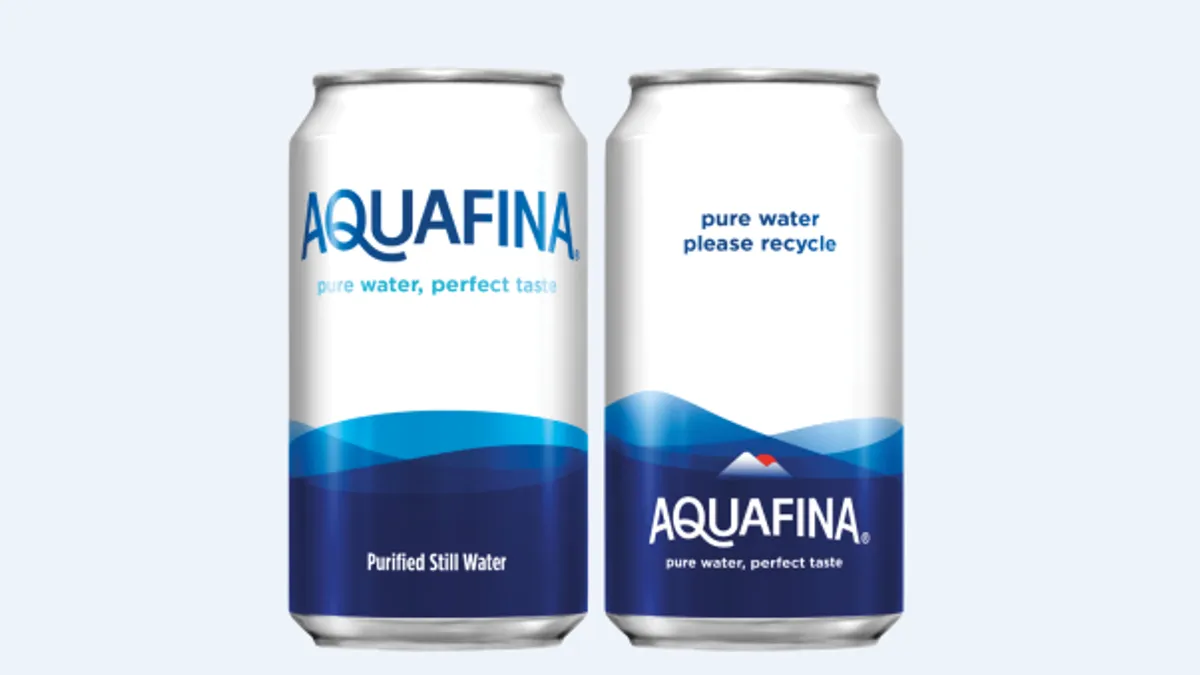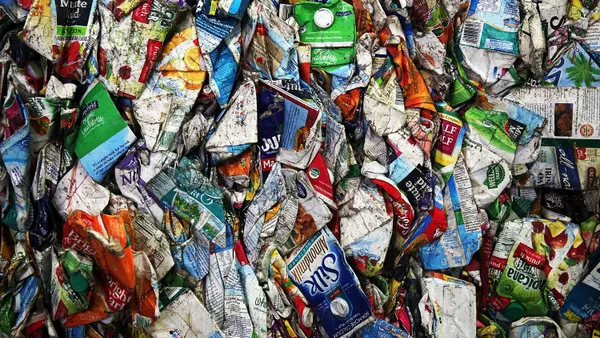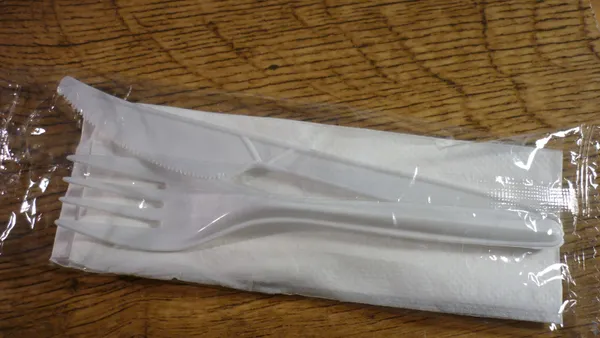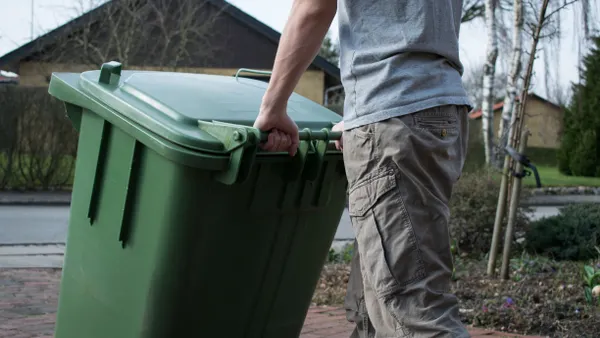Dive Brief:
- PepsiCo plans to start packaging Aquafina water products in aluminum cans next year for foodservice outlets and is testing the change in certain retail locations. The company also said it will switch its bubly sparkling water brand from a mix of cans and plastic bottles to all cans, in addition to shifting its Lifewtr bottled water products to 100% recycled plastic by the end of 2020.
- According to PepsiCo, these changes will eliminate more than 8,000 metric tons of new plastic and approximately 11,000 metric tons of greenhouse gas emissions. PepsiCo said it wants to have all its packaging recyclable, compostable or biodegradable by 2025 and use 25% recycled plastic content in all its plastic packaging.
- "As one of the world's leading food and beverage companies, we recognize the significant role PepsiCo can play in helping to change the way society makes, uses and disposes of plastics," Ramon Laguarta, chairman and CEO, said in a release.
Dive Insight:
As a major global user of food-grade recycled polyethylene terephthalate (PET), PepsiCo's packaging decisions can influence competitors to move toward more sustainable choices.
According to Statista, Aquafina was the second-best-selling name brand water in the U.S. last year, and switching its signature plastic bottles to aluminum cans is one of the most high-profile cases of a company ditching plastic packaging.
The packaging changes, which could boost PepsiCo's credibility as a sustainably-minded company, may help relieve pressure from investors and consumers over single-use plastics. Last year, an investor group called the Plastic Solutions Investors Alliance requested that PepsiCo, Nestlé, Unilever and others reveal their annual use of plastic packaging and set reduction goals — while switching to recyclable, reusable or compostable packaging when possible.
Global beverage makers have consistently been the focus of such efforts.
Bottled water is more popular with consumers than soda; according to Beverage Marketing Corp., U.S. consumption of bottled water jumped 284% between 1994 and 2017, hitting almost 42 gallons per person each year.
That demand puts a huge strain on the environment: producing plastic bottles requires three times the water each bottle actually holds, and only about 30% of plastic bottles are recycled.
Other beverage makers are also committing to more sustainable packaging.
Coca-Cola said last year it plans to collect and recycle the equivalent of 100% of the packaging it sells globally by 2030 as part of a company-wide "World Without Waste" initiative. And Danone's Evian brand committed last year to making all of its bottles from recycled plastic by 2025.
But aluminum cans are much more recycle-friendly than plastic — which is why smaller water brands such as Vita Coco's Ever & Ever are using them. A similar commitment from a big company like Pepsi could push other brands down the same path.
Many food and beverage makers have been working to cut back on plastic and operate more sustainably — goals that are increasingly essential to consumers. Biodegradable, edible and alternative packaging options are being developed to meet consumer demand for sustainable products, and boxed water has also become popular, with Just Water, Boxed Water, Icebox Water and Rethink Water all offering paper-based cartons.
A balance of inputs and outputs will be critical toward making these packaging changes work.
As sustainability increases, higher costs may follow — and it remains to be seen whether environmentally-minded consumers will pay more for water packaged in aluminum cans or 100% recycled plastic. Still, consumers have indicated they are willing to pay more for sustainable products — and PepsiCo seems to be willing to take that gamble.












